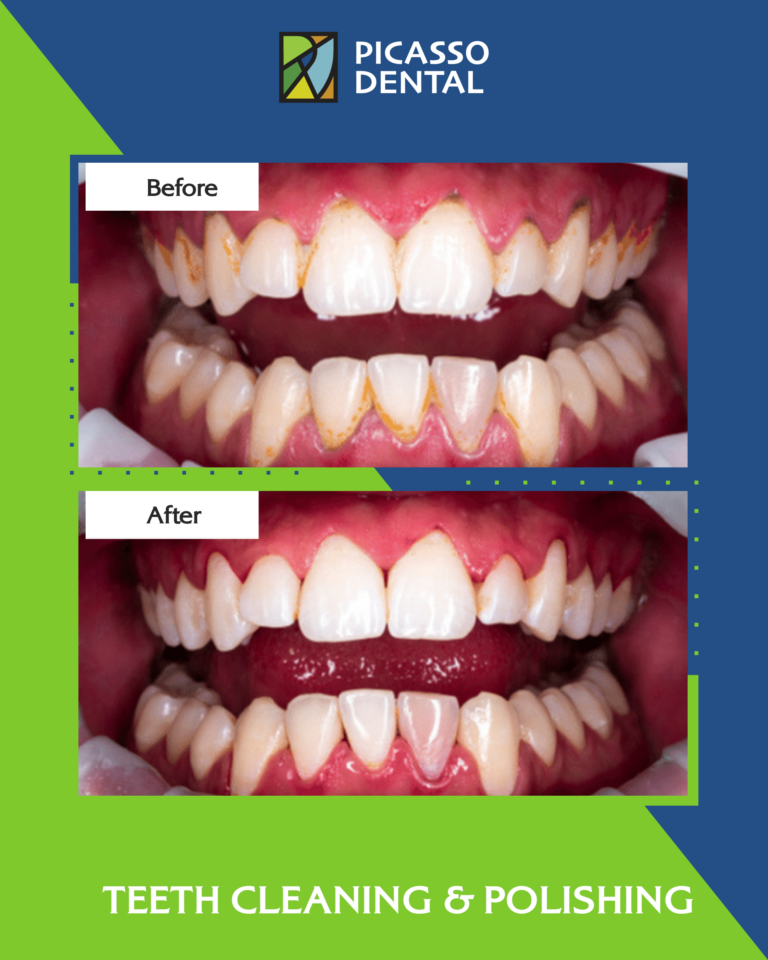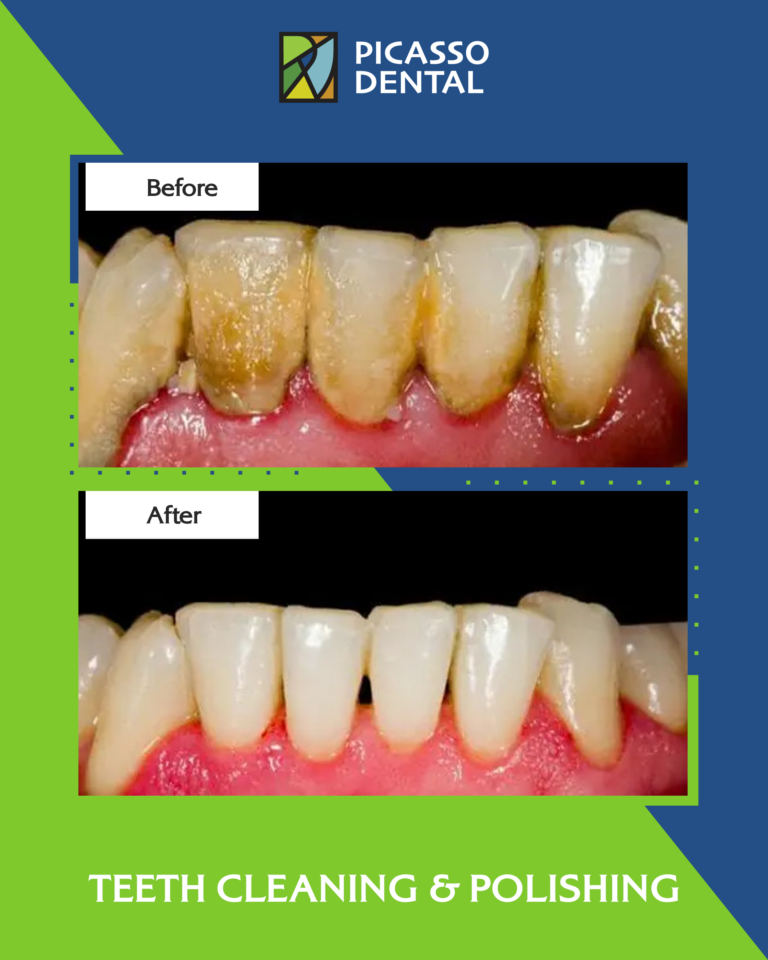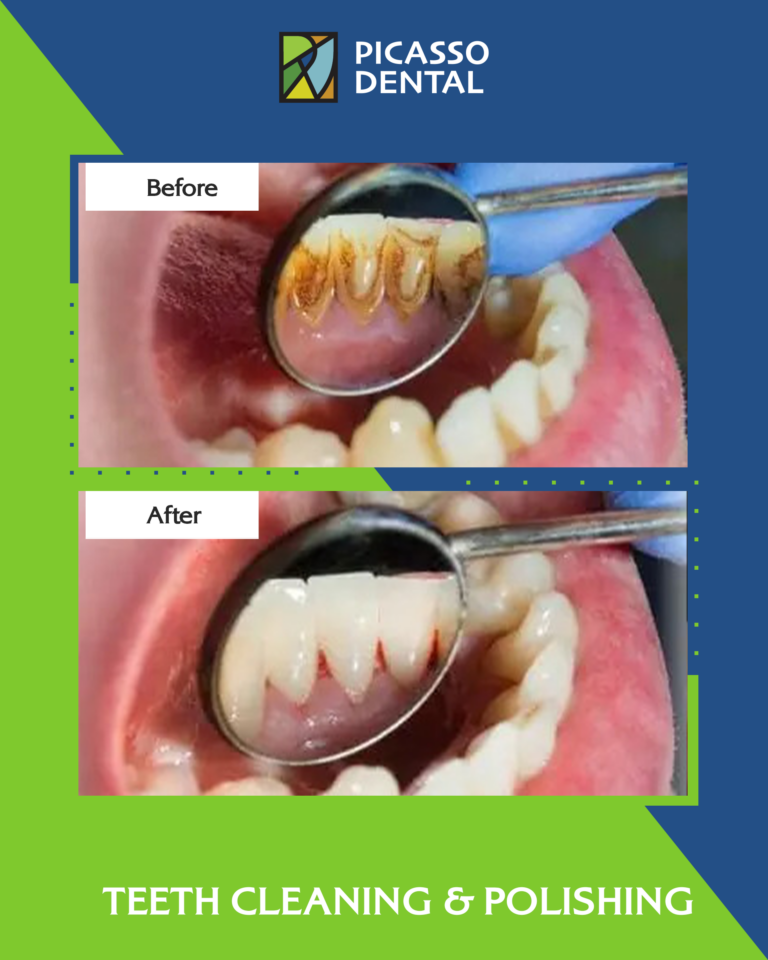Routine Check-up and Cleaning
A checkup every 6 months, cleaning & polishing are highly recommended for children and adults of ALL ages. It's important to maintain strong oral health so that you can protect your general health
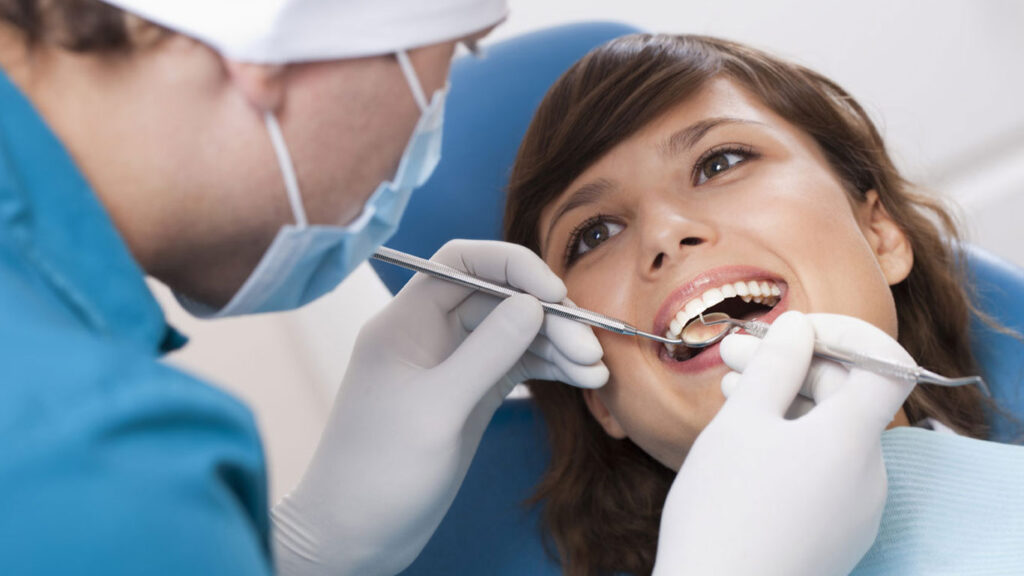
Routine Dental Check-up
Regular dental exams and X-rays are very important. Many dental problems are easy to fix if caught early. But if you wait until there is tooth pain, often the tooth will require more invasive and costly treatment such as crowns, root canals, or extractions.
Seeing the dentist is very different from seeing the family doctor. Generally, we don’t go to the doctor unless we feel sick. However, most small cavities are asymptomatic, which means they don’t give the patient symptoms such as pain. Waiting for pain before seeing the dentist can end up costing you, in the long run, both financially and in overall dental health. As Benjamin Franklin said, “An Ounce of Prevention is worth a Pound of Cure.”
Dental X-ray during check-up visit
Patients usually have these X-rays annually. Yet, if the dentist is monitoring the progress of a patient’s dental treatment or issue, the patient should have an X-ray more often. Several factors influence how frequent a dental X-ray should be. Age, history of periodontitis, current oral condition, symptoms of oral disease, and history of tooth decay are the most common ones.
A new patient should get dental X-rays. That way, the dentist can get a baseline image of the new patient’s oral health during the checkup. This is important if the patient does not have dental X-rays from the previous dentist. A patient who has not seen the dentist for a while should get X-rays, as well. This will update the dentist about the status of the patient’s dental health.
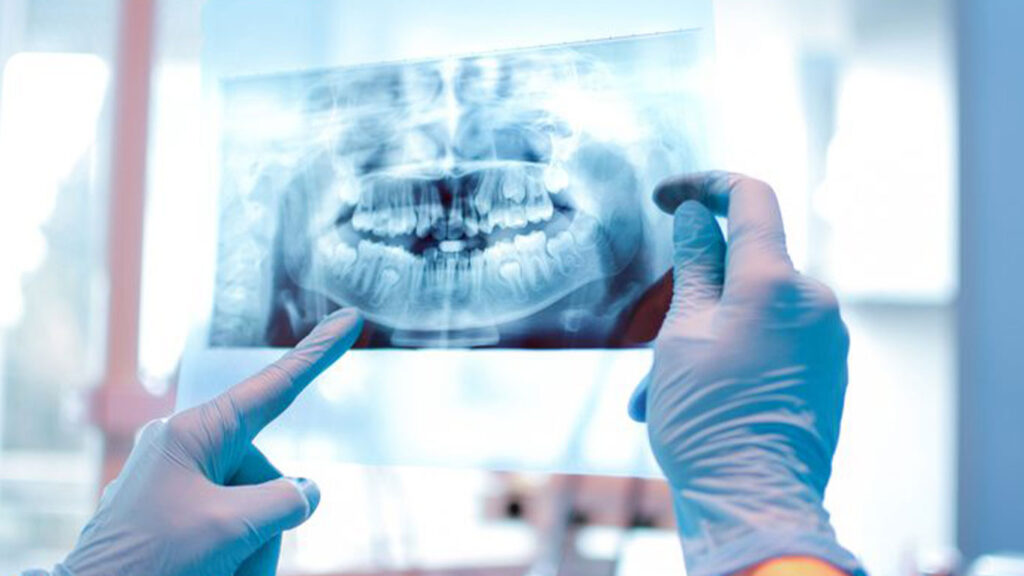
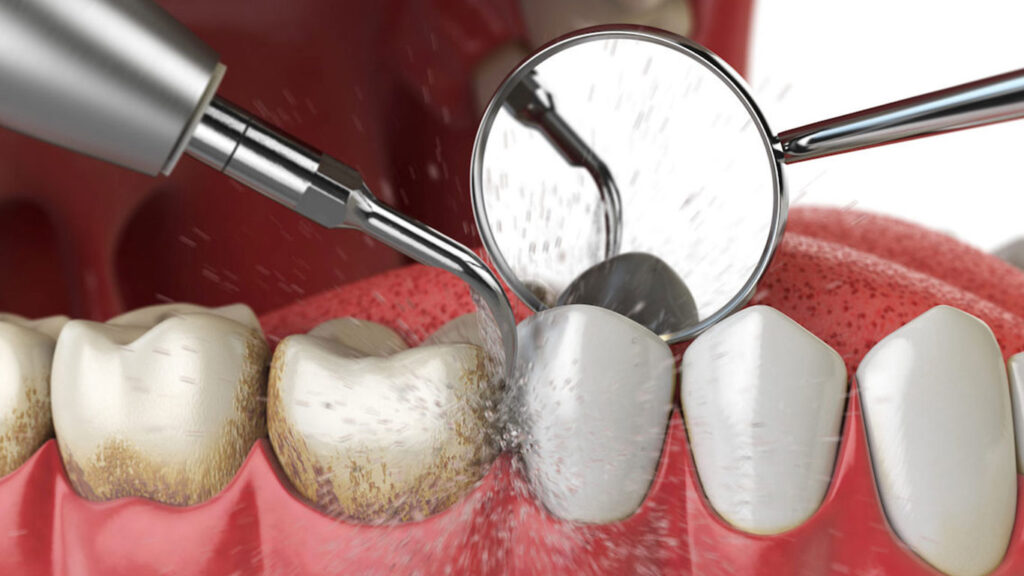
Routine Cleaning
Plaque buildup forms as bacteria breaks down food particles caught on or between the teeth. Unless addressed, the buildup could begin to weaken and erode enamel, causing cavities to form. The buildup also irritates and inflames the gum tissues, causing gingivitis and over time, the onset of gum disease. To avoid painful decay or infections, or periodontal issues that could lead to tooth loss, we need to remove the buildup. Using the ultrasonic scaling device, we gently break up the plaque and tartar. Afterward, we thoroughly polish the teeth to help ensure a smoother finish and a brighter appearance.
We suggest one of these visits every six months, as issues like gum disease and tooth decay take months to form, so a routine visit helps interrupt this cycle and keep your smile strong, healthy, and beautiful.
Application of the Prophylaxis Paste
Prophylaxis paste is applied on the area of the tooth surface which requires polishing. Prophylaxis pastes which have smaller particle sizes make the tooth surface cleaner, lustrous, and smooth. These pastes also make the tooth surface less prone to plaque and stain accumulation.
Prophylaxis paste is also essential to keep your teeth stronger and less prone to cavity.
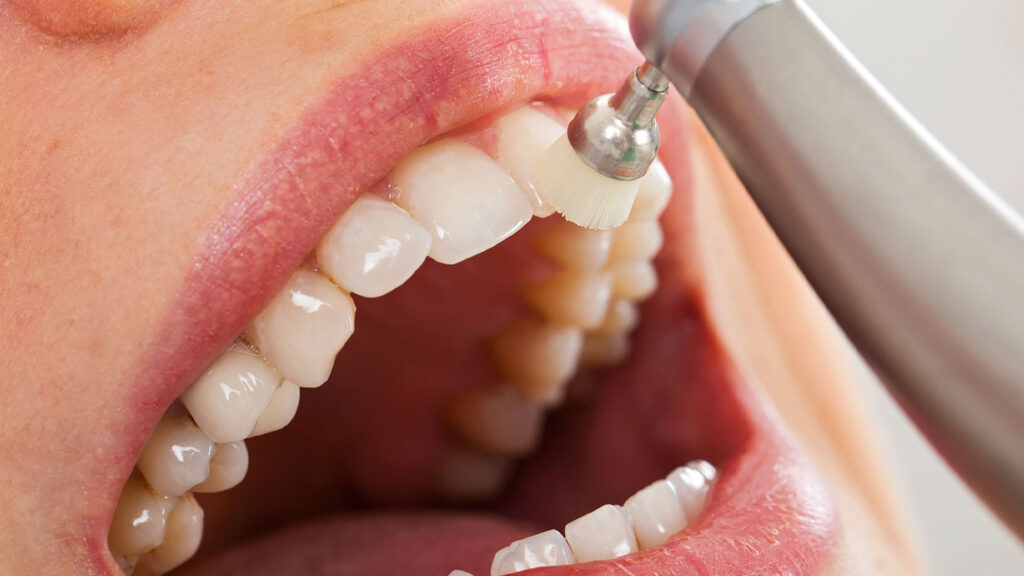
Book an Appointment today!
Teeth cleaning Before & After
Frequently Asked Questions

Following your dental cleaning, you can expect clean teeth, fresh breath, and an attractive smile. Dental cleanings are painless, and usually take less than 45 minutes. During your cleaning, our dentist will scrape off any plaque on your teeth, and then clean and polish your teeth to remove bacteria biofilm on and between your teeth. We may also provide a fluoride treatment if it seems that your teeth are at a higher risk for tooth decay.
The American Dental Association recommends that both children and adults receive a professional teeth cleaning and exam twice a year. Patients with a history of periodontal disease or another recurring oral disease or condition may require more frequent treatments.
The best way to keep your teeth and gums healthy between dental cleanings is to brush your teeth in the morning and before you go to bed, or after each meal, floss daily, and rinse with an antibacterial mouthwash.
Replace your toothbrush every 2-3 months, and avoid hard-bristled toothbrushes, as they can cause tooth sensitivity and encourage bleeding gums.
We encourage you to contact our dentist if you are experiencing dental pain. Waiting could exacerbate your condition, and early treatment is always less invasive and more cost-effective.
You can avoid expensive dental procedures in the future by getting a dental cleaning, which keeps your teeth and gums clean and healthy. Leaving gum disease untreated can result in deep cleaning (scaling and root planing), gum grafting, bone grafting, or a tooth replacement, for example.
Nope! Dental cleanings do not induce any pain, though there may be slight sensitivity during or after. The products used by the hygienist are much stronger than store-bought ones, which makes them great for plaque and tartar removal, but they can make the teeth feel more sensitive.
Yes! While a dental cleaning may not necessarily remove stains, when done regularly, they can help prevent staining from occurring. The products used in a general dentistry office are much stronger than those used at home, which means they are better able to remove the buildup that can cause staining.
A general dentistry practice will likely take an hour to complete a dental cleaning. Individuals who undergo dental cleanings twice a year may also have an examination, fluoride application and X-rays taken, which can make the appointment take longer. That said, generally it should not go past 90 minutes at most.
Many patients ask us if a manual or electric toothbrush is better and our answer is that both are effective for keeping teeth clean. According to the American Dental Association, both manual and electric toothbrushes are equally effective in cleaning teeth.
A dental teeth cleaning removes plaque and tartar that builds up on the teeth over time. Plaque is a sticky, soft film that contains millions of bacteria that love to live on your teeth. If left unchecked, these bacteria can cause cavities, gum disease and other complications that you want to avoid.
Generally, we will use an ultrasonic instrument and a dental mirror to examine the teeth and look for signs of irritation, swelling, decay, tartar or bleeding. Without treatment, these can lead to further problems in the future. The ultrasonic instrument we use has a mild vibration technology that loosens larger pieces of tartar.
It also sprays mists of cool water to wash away the tartar and debris loosened by the vibrations. The tip of the ultrasound instrument is rounded and curved and is kept in constant motion. Once we remove the larger pieces of tartar, we will switch to find a handheld instrument to eliminate the deposits on the tooth and smooth the tooth surface.
Book your Appointment today!
Whether you're visiting us for professional teeth cleaning, a routine dental health check or something more extensive, our qualified dentists at Picasso Dental Clinic offer a wide range of comprehensive dental services. It's our aim to be a one-stop dental experience for you and your loved ones.

+84 2473 088 848

